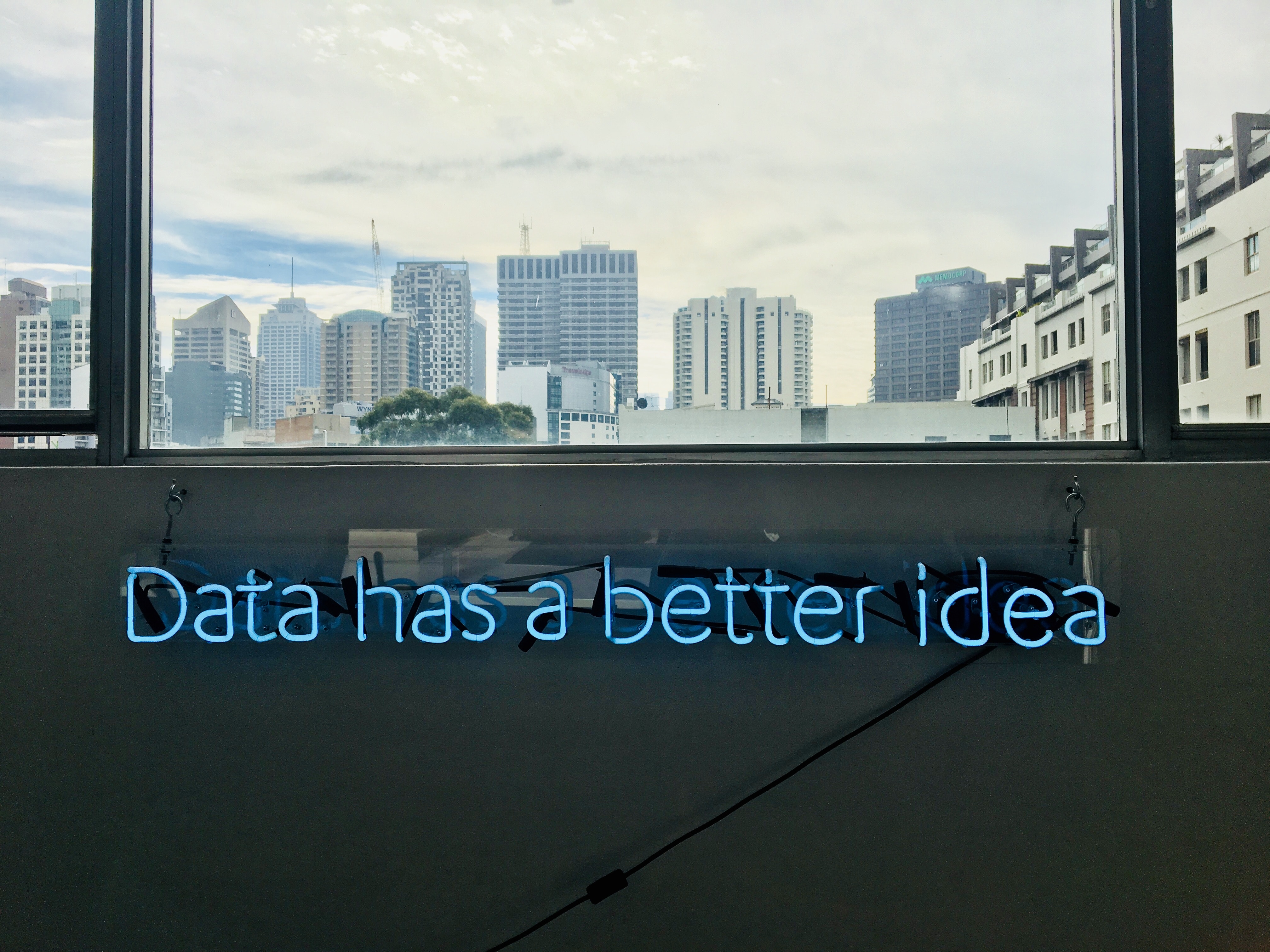Intelligent apps are already impacting your everyday life, but they aren't adding real value to your life, even though they are perfectly capable of doing so. Technologies like Artificial Intelligence (AI) and Machine Learning (ML) are adding value to large corporations like Google and Facebook, and the others. These organisations feed off the constant stream of data extracted out of almost every one of your digital interactions, but they and others are neglecting to use the technology to its full potential for the benefit of everyday people.
Every time you’re helpfully recommended a new book or movie, or suddenly Facebook is showing you those tyres you were telling your mate about yesterday; you can be sure that AI/ML is behind it, even though many people adamantly deny this. However, what about what AI is really supposed to be? That all-knowing, always-there assistant that knows everything about you and carries you through every day like a second, much better, brain? Well, the technology is almost there, but no one has put it all together or fully embraced the idea of it.
Stargate SG-1: The ‘Link’ allows everyone on planet P3X-289 to access their planets version of the internet at all times via a neural interface. 1
AI/MR In Daily Use
Even when AI/MR is working for you, it’s not doing enough. Sure, it filters out your spam in your emails 2,but it could be writing email responses, and asking you to simply check it. This is something that Google's email client has only just begun to do3. Every time you get on a plane, the pilot uses autopilot to get you to your destination 2, but do we really need him there at all? Perhaps we could already be relying on machines and only handing over to humans when we need to. At the moment, AI assistants are far from conversational, and this is another limitation that really should already been solved by the tech giants peddling them. Cleverbot has been doing it for years. 4
Developer Assistance
If you're a developer then Google Duplex may be about to make your job easier, instead of trawling through API references which can sometimes be worse than looking through an actual bin, you could use Google Duplex to interrogate your targets Duplex system and get the data you need. (Google, if you use this idea you have to buy me a beer.)
Tailored Advertising
Soon your TV ads will be tailored to whoever is in the room — as long as they have a smartphone. This technology could be possible using ideas stemming from patents like the one recently filed by Facebook. The patent application is for a system that can remotely activate the microphone on your phone's microphone via sound from your TV to identify who is in the room with you. This technology could be used for more dystopian reasons, such as upholding UK television licences 5,6
Health Benefits
AI doctors are already producing better results than real doctors in some instances 7,8, and there is no reason why an AI couldn't replace most of their functions. No more would you need to wait 4 hours for a script from a doctor who may have limited knowledge and memory of different diseases and diagnoses; they are human after all! Your AI doctor, who has all of medical history and knowledge at its neuron tips, could serve you in a fraction of the time. This fact alone could spell the end for widespread public adoption of AI. As the jobs that AI takes over get closer to the top, people may begin to shun and spread fear, uncertainty, and doubt on the technology just before it spells the end for their careers.Currently, doctors already rely on various algorithms to look at large datasets to make diagnoses, which will start to extend to many other branches of healthcare and lead to a more accurate diagnosis.9 The armband you're currently using to count your steps could soon be able to suggest changes to your diet and daily routine. As you record what you've been doing and eating, an AI system monitoring your vitals could tell you what your body does and doesn't need. 10
Supporting the Elderly
Having AI in the home monitor your elderly or at-risk relative is something that is now possible, but just hasn't been implemented. (If you use this idea, please buy me a beer too!) Turning cloud-based security cameras inside the home instead of outside and then training an AI model to alert you when your relative displays irregular behaviour could help to alert family members to a stroke or a fall. 9
Lawmakers Hold Back Technology
Some technologies have been held back by lawmakers. Self-driving cars 11 and Google Glass 12 are examples of this. We should be getting in our cars and having them shoot us over to our destinations at breakneck speeds without the use of traffic lights. After all, the AI can thread the needle through an intersection as it would know the exact trajectory of all the other cars going through it.
So far, we can celebrate the little wins. The Google Pixel can blur out the background of your latest selfie, and Google Translate has an app that translates the world through your camera in real time, and this actually very useful while travelling as it works quite well 13. There are still many other items that are yet to have AI added to them, so when you notice an opportunity, say something and take the initiative! You could be the first person to have your aircon monitor the skin temperature of everyone in the room and direct airflow accordingly. (…and if you do become the first person to do this, you also owe me a beer.)
[As written by one of Senior Technical Consultants]
References
1‘Stargate SG-1’ Revisions (TV Episode 2003). (2003).
4 Monsters, D. 25 Chatbot Platforms: A Comparative Table – Chatbots Journal. Chatbots Journal (2017). Available at: https://chatbotsjournal.com/25-chatbot-platforms-a-comparative-table-aeefc932eaff (Accessed: 28th February 2019)
5 Is Facebook listening to me through my phone’s microphone? Quora Available at: https://www.quora.com/Is-Facebook-listening-to-me-through-my-phones-microphone (Accessed: 28th February 2019)
6 Solon, O. Facebook patents system that can use your phone’s mic to monitor TV habits. the Guardian (2018). Available at: https://www.theguardian.com/au (Accessed: 28th February 2019)
7 Artificial intelligence diagnoses flu, gastro more accurately than junior doctors. triple j (2019). Available at: https://www.abc.net.au/triplej/programs/hack/artificial-intelligence-diagnoses-more-accurately-than-doctors/10808304 (Accessed: 26th February 2019)
8 Robots are better than doctors at diagnosing some cancers, major study finds. The Telegraph (2018). Available at: https://www.telegraph.co.uk/news/2018/05/28/robots-better-doctors-diagnosing-cancers-major-study-finds/. (Accessed: 26th February 2019)
9 Bosavage, J. D. Three Ways AI Will Impact Your Everyday Life. [:] Available at: http://theinstitute.ieee.org/technology-topics/artificial-intelligence/three-ways-ai-will-impact-your-everyday-life. (Accessed: 28th February 2019)
10 15 Ways Machine Learning Will Impact Your Everyday Life. EliteDataScience (2018). Available at: https://elitedatascience.com/machine-learning-impact. (Accessed: 28th February 2019)
11 Bogost, I. Can You Sue a Robocar? The Atlantic (2018). Available at: https://www.theatlantic.com/technology/archive/2018/03/can-you-sue-a-robocar/556007/. (Accessed: 26th February 2019)
12 Proposed privacy laws put blinkers on Google Glass. Australian Financial Review (2014). Available at: https://www.afr.com/technology/enterprise-it/proposed-privacy-laws-put-blinkers-on-google-glass-20140331-ix9qa (Accessed: 26th February 2019)
13 Robson, C. 13 ways you’re using AI in your daily life. Google (2018). Available at: https://www.blog.google/technology/ai/13-ways-youre-using-ai-your-daily-life/. (Accessed: 26th February 2019)

